Want to be seen here?
Connect your company to the marketplace for free.
Time for a display campaign? Ocast has gathered thousands of solutions in one place so you can get started quickly. Fill in the form and start receiving offers for campaign proposals.
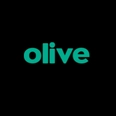
olive is informed, authoritative, good-looking and witty. Reflecting the appetites of intelligent, trend-aware food lovers, olive has a mix of imaginative but achievable recipes, restaurant reviews an...

Papercraft Inspirations provides creative ideas for every card maker, from beginners to experts. Our community are passionate about card making and avid fans of the latest craft products and tools on ...

RadioTimes.com is the UK’s fastest growing TV and entertainment website, reaching 15m unique users a month. Far more than simply the online home of the UK’s leading television and radio magazine, Radi...

Simply Crochet is a monthly craft brand from the makers of Simply Knitting and Mollie Makes. It’s a celebration of all things crochet and is full of creative ideas for anyone who loves – or would love...
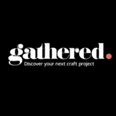
Simply Sewing is a practical brand for makers who sew, or would like to start sewing. Its fresh attitude and ideas, beautiful photography and inspiring projects will have you behind the sewing machine...
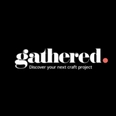
The Knitter is the premier brand for people who want to knit beautiful, original patterns from the world’s best designers. To explore new knitting techniques and discover the latest products. And to r...

The World of Cross Stitching is the flagship brand in our stitching portfolio. Launched in 1997, it is the number one in the market and the monthly must-buy for stitchers everywhere, whatever their ta...
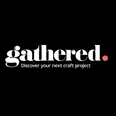
Today’s Quilter is the new brand with a fresh take on traditional quilting. With projects, features, techniques and news, each issue offers intermediate to experienced quilters 100 pages of beautiful,...

Who Do You Think You Are? is Britain’s best-selling family history brand. The magazine explores the stories behind the popular TV series and helps its readers uncover their own roots. Each issue is pa...
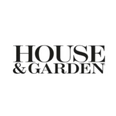
House & Garden is an American shelter magazine published by Condé Nast Publications that focuses on interior design, entertaining, and gardening.Its US edition ceased in 1993, and after an unsuccessf...
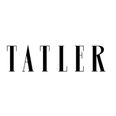
Tatler is a British magazine published by Condé Nast Publications focusing on fashion and lifestyle, as well as coverage of high society and politics. It is targeted towards the British upper-middle c...
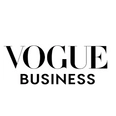
Vogue Business is an online fashion industry publication launched in January 2019. Headquartered at Condé Nast in London, we offer a truly global perspective on the fashion industry, exploring how cul...
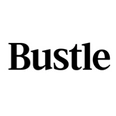
Bustle is an online American women's magazine founded in August 2013 by Bryan Goldberg. It positions news and politics alongside articles about beauty, celebrities, and fashion trends. By September ...
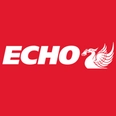
The Liverpool Echo is a newspaper published by Trinity Mirror North West & North Wales – a subsidiary company of Reach plc and is based in St Paul's Square, Liverpool, Merseyside, England. It is publi...
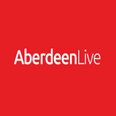
Aberdeen Live’s objective is to showcase the great and good in the Granite City. From our wonderful beaches to our vibrant neighbourhoods, we aim to shout about everything that makes our city, and the...
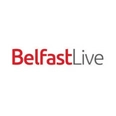
When BelfastLive was launched in Feburary 2015, our vision was to be the beating heart and a new voice for a vibrant, exciting city which has left the shackles of the past behind.We intend to provide ...
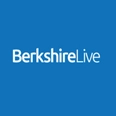
Berkshire Live formerly Get Reading. News, Sport, Entertainment, Business and video from across Reading (England), Wokingham, Bracknell, Slough, Maidenhead, Windsor, Newbury, Berkshire and the Thames ...

BirminghamLive is the digital channel of the Birmingham Mail - the respected brand bringing news, sport and features to Birmingham and the wider region for150 years.Throughout its history, the Birming...

The Bristol Live website and Bristol Post daily newspaper cover Bristol and the wider Bristol, South Gloucestershire, North Somerset and North East Somerset area.The Post was founded in 1932 amid loca...
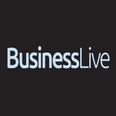
BusinessLive is the new, national digital brand from Reach - and it's focused on news about businesses from across the regions. We'll offer the best coverage of local business markets and of key busin...
Display advertising, often referred to as banner advertising, involves visual ads placed on various websites, in contrast to text-based search ads that appear in search results on platforms like Google.
While search ads are focused on direct response, display ads aim at building brand awareness through engaging visual content like images or animations. Display advertising also enables retargeting, where ads are redirected to users who have previously visited your website, helping to keep the brand fresh in mind.
With opportunities to measure campaign performance and customize design and target audience, display advertising offers an attractive strategy for brands looking to enhance their online presence and effectively engage their target audiences.
The most effective formats and sizes for display ads vary depending on the platform and target audience, but here are some popular options:
Leaderboard (728x90 px): Positioned at the top of the page, this ad size captures visitors' attention right away.
Medium Rectangle (300x250 px): This size is flexible and can be placed in sidebars or embedded within content.
Large Rectangle (336x280 px): A larger variant of the Medium Rectangle that offers more visible space.
Wide Skyscraper (160x600 px): Often used in sidebars, offering a long, vertical ad space.
Mobile Leaderboard (320x50 px): Optimized for mobile devices and often placed at the top or bottom of the screen.
Consider adhering to industry standards and adapting ad format and size to the specific platform and your target audience. However, the emphasis should be on having well-thought-out content that engages and is relevant to your target audience with clear "Call to Actions" (CTA) to encourage clicks and conversions.
Measuring the effectiveness of your display advertising campaigns is crucial for evaluating the results of your campaign and for fine-tuning future marketing strategies. A first step could be to look over the Click-Through Rate (CTR), which represents the number of clicks your ad receives per view, providing an indication of the ad's engagement level. It is also important to track the conversion rate, which shows how many clicks are converted into desired actions such as sales or leads. Cost Per Conversion is another key indicator that helps you understand the cost-effectiveness of your campaign.
It may also be good to look at the impression rate, that is, how many times the ad has actually reached out and been displayed for brand-building purposes.
One of the major advantages of this type of advertising is its ability for audience targeting, where ads can be directed based on demographics, behavior, and retargeting, enabling a more personalized advertising experience. Moreover, with the use of various analytical tools, it becomes easy to track and measure the campaign's effectiveness by observing data on clicks, conversions, and views, which provides valuable insights.
However, display advertising also has its downsides. Ad blocking is one of the major challenges, where users can choose to block display ads, which in turn reduces the reach and effectiveness of your campaign. Ad fatigue is another downside, where ads that are shown too often can become irritating for the users, leading to decreased engagement and negative brand associations. Despite the ability for audience targeting, audience dilution can be a challenge if precise targeting is not used, which potentially leads to wasted marketing expenses. Additionally, the cost of display advertising can become significant, especially if the campaign is not well optimized to achieve desired results.
The cost of display advertising can vary based on several factors such as website, ad format, and target audience. Besides that, there are different pricing structures one can base on to adjust the cost according to the goal at hand. Below we list different pricing options for display advertising.
CPM (Cost Per Mille or Cost Per Thousand Impressions):
The price for 1000 views of your ad.
Often used for campaigns aimed at increasing brand awareness.
CPC (Cost Per Click):
The price you pay for each click your ad receives.
Used when the goal is to drive traffic to a website or increase interaction.
CPA (Cost Per Acquisition or Cost Per Action):
The price for each specific action or execution, such as a purchase or lead generation, that arises via your ad.
Used when the goal is conversions rather than just views or clicks.
CPL (Cost Per Lead):
The price for each lead generated through your ad.
Used in B2B marketing or for products/services with longer sales cycles.
CPV (Cost Per View):
The price for each viewing of a video ad.
Often used for video-based advertising campaigns.
Each pricing structure suits different goals and campaign types, and choosing the right pricing structure can help maximize the ROI for your display campaign.
Connect your company to the marketplace for free.
No commitments.